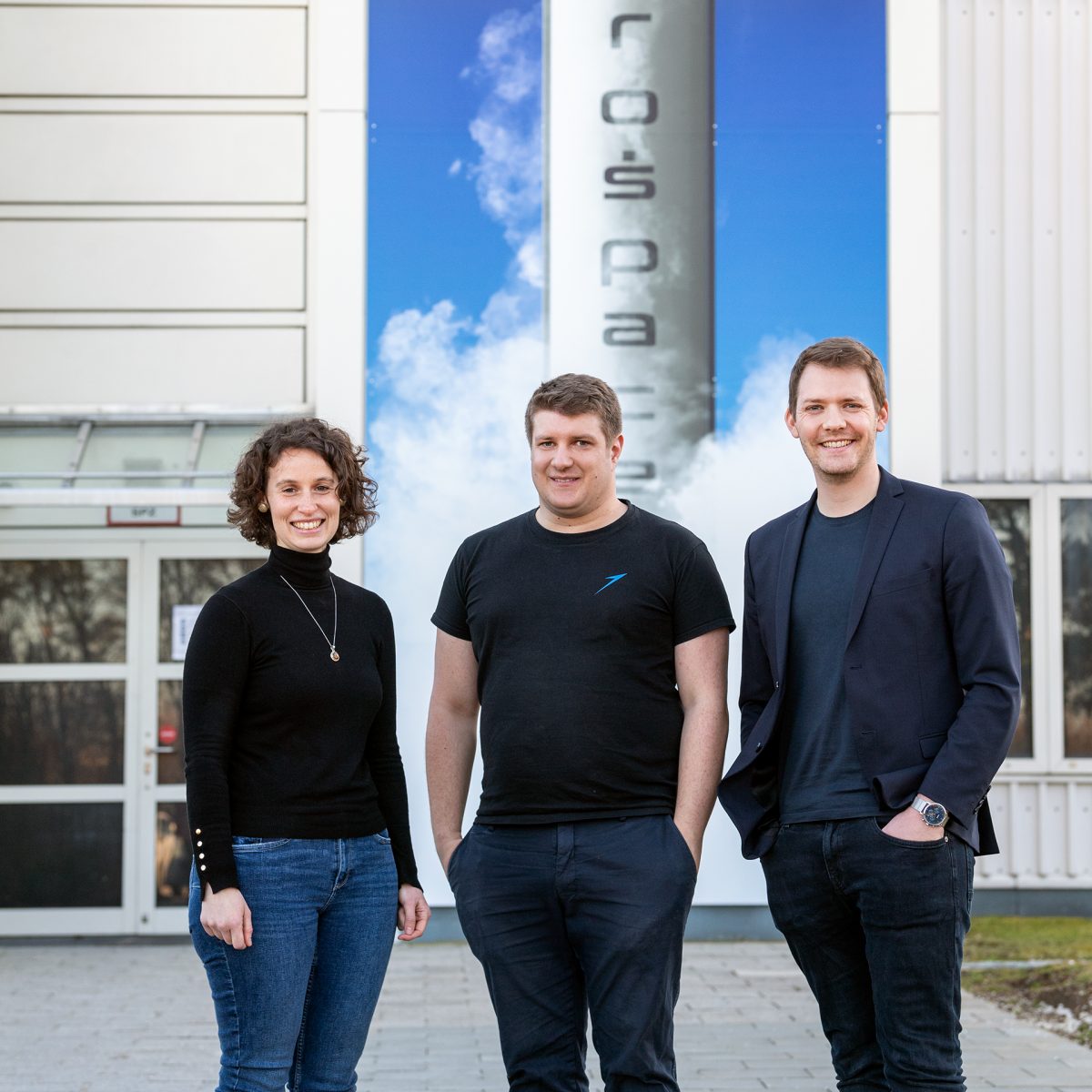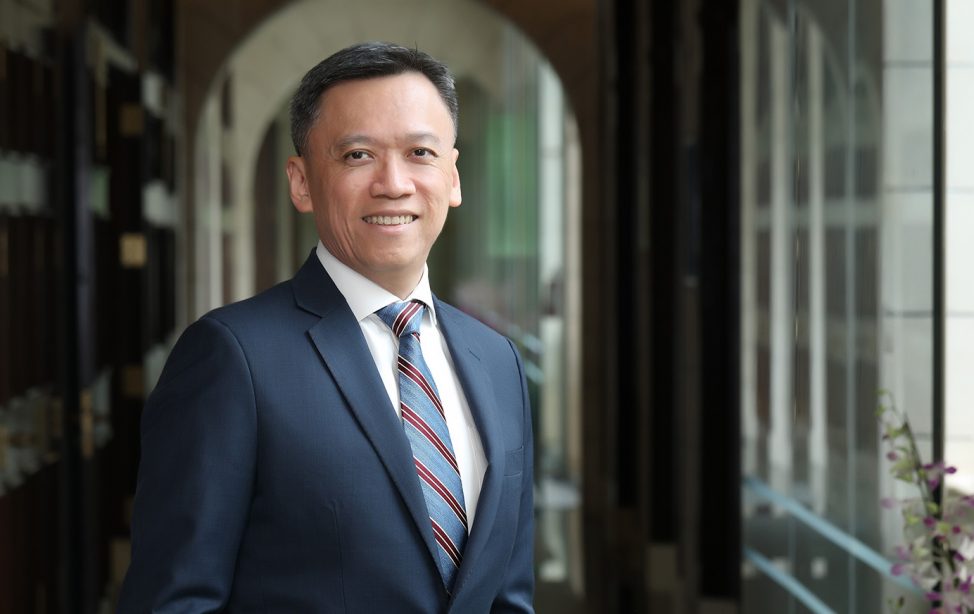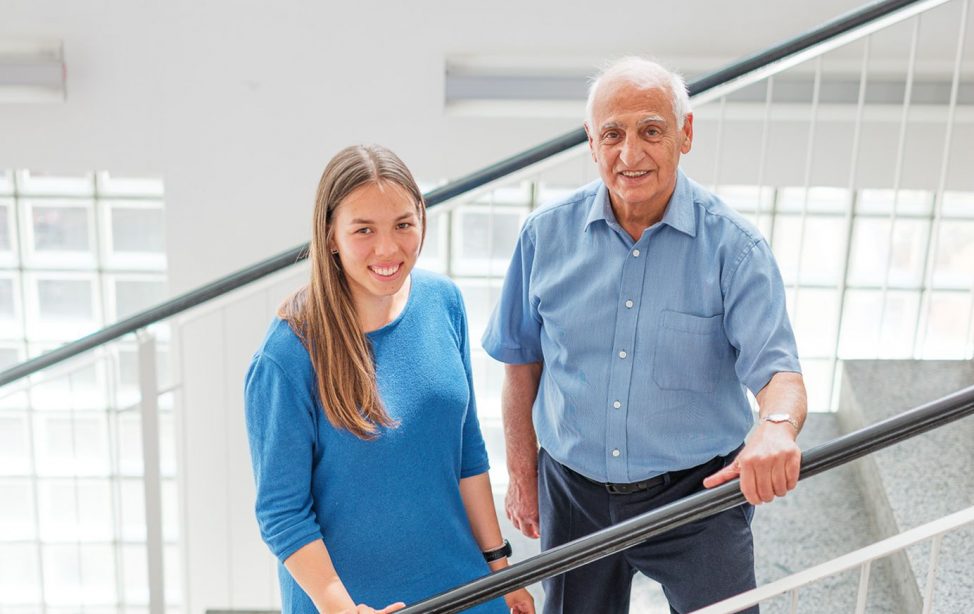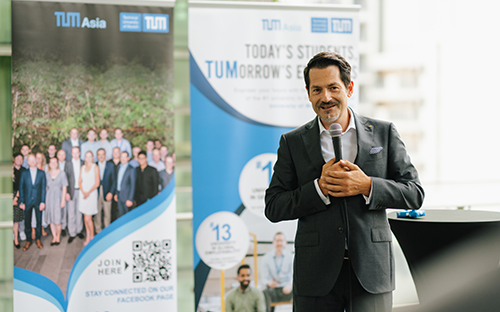
TUM Alumni Josef Fleischmann (center) and Daniel Metzler (right) teamed up with Markus Brandl and created the company Isar Aerospace. Lucrezia Veggi (left) has been with the company virtually since day one: She is heading the team responsible for integrating the rocket engine and is at the same time completing her doctorate in Aerospace Engineering at TUM (Picture: Astrid Eckert/TUM).
LOTS OF SATELLITES
In order to transport satellites into space, rockets need to be launched. The three TUM Alumni Daniel Metzler (Master Aerospace Engineering 2019), Josef Fleischmann (Bachelor Mechanical Engineering 2013, Master 2017) and Markus Brandl (Bachelor Mechanical Engineering 2016, Master Aerospace Engineering 2019) developed a launch vehicle that is smaller and cheaper than others. With a length of 28 meters and a diameter of 2 meters, the ‘minilauncher’ is only half the size of a current ESA Ariane 5 rocket. Nevertheless, it easily accelerates small satellites and satellite constellations to just under 28,000 kilometers per hour.
Because this small rocket brings the loads into space at a lower cost, satellite systems as a whole can become more affordable. Instead of individual expensive projects, entire groups of satellites can now be brought into space. “This is significant for the entire population,” says Daniel Metzler. “Many people think space travel is just about exploring the moon and Mars. But it’s primarily about improving life on Earth.”
ROCKET ENGINES BUILT BY STUDENTS
For Daniel Metzler, Josef Fleischmann and Markus Brandl, the research opportunities at TUM and the entrepreneurial spirit that prevails here were the incubator for the start-up they founded in 2018. In the student working group WARR (Wissenschaftliche Arbeitsgemeinschaft für Raketentechnik und Raumfahrt) at TUM, they were given all the freedom they needed to tinker with rocket engines.
This drew the attention of the European Space Agency (ESA) even before a start-up had been launched, and attracted the first commercial buyers from the industry. “This interest was in no small part due to TUM’s good reputation,” says Daniel Metzler. “After all, why else would anyone want to buy rocket engines built by students?”
The first engine parts were created in the high-tech MakerSpace workshop on Campus Garching. Now production has moved to the alumni’s own manufacturing facility in Ottobrunn, which was opened in September 2020 in the presence of Minister President Markus Söder and TUM President Thomas F. Hofmann. In close proximity to TUM’s Faculty of Aeronautics, Astronautics and Geodesy and in the vicinity of other aerospace start-ups as well as established companies, they now employ around 250 people, including quite a few TUM Alumni.
THE EUROPEAN ROCKET START-UP WITH THE BEST FUNDING
Isar Aerospace is now considered one of the best-funded space start-ups in Europe and has secured more than 150 million euros from private investors over the years. In 2021, it won the German Aerospace Center’s first German microlauncher competition, launched and commissioned by the German Federal Ministry of Economics as part of the BOOST! initiative of ESA’s Commercial Space Transportation Services and Support (C-STS) program. The top prize earned the founders a launch contract for small satellites worth eleven million euros. The company won another ten million this year when it was awarded the European Union’s EIC Horizon ‘Low Cost Space Launch’ prize.
As early as next year, Daniel Metzler, Josef Fleischmann and Markus Brandl plan to send their launch vehicle ‘Spectrum’ into space. In the long term, they are aiming for 25 to 30 launches per year. The first commercial customers are already waiting, such as the satellite company OroraTech, which was also founded by TUM Alumni. “With TUM, you can fly high,” Daniel Metzler says.


